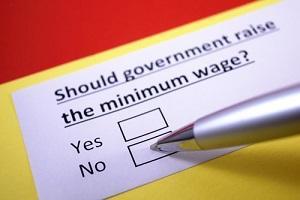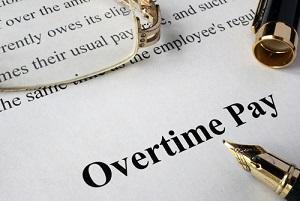
 847-995-1205
847-995-1205
Recent Blog Posts
Is an Independent Contractor the Right Hiring Choice for Your Growing Business?
 Watching your company go from a little-known business to booming can be exciting. It can also be a little anxiety-inducing. You need someone to help you fill orders, stock product, or make deliveries. Or maybe you need someone to set up a website or manage your social media page. Unfortunately, you may not be able to hire an employee just yet. Perhaps you cannot afford to pay someone for regular, part-time hours, or maybe you are not set up yet for income tax withholding. Whatever the situation, an independent contractor could be the answer. How can you tell? The following information may help.
Watching your company go from a little-known business to booming can be exciting. It can also be a little anxiety-inducing. You need someone to help you fill orders, stock product, or make deliveries. Or maybe you need someone to set up a website or manage your social media page. Unfortunately, you may not be able to hire an employee just yet. Perhaps you cannot afford to pay someone for regular, part-time hours, or maybe you are not set up yet for income tax withholding. Whatever the situation, an independent contractor could be the answer. How can you tell? The following information may help.
What is an Independent Contractor?
In its simplest definition, an independent contractor is someone that works for themselves, not your company. You are not responsible for paying their taxes, you do not have to provide health insurance or carry workers' compensation to cover them, and you are not liable for their actions while they are working (note that there may be exceptions here). You simply pay them for the work they have done and, if necessary and desired, continue to do so. Then, come tax time, you file the appropriate form to show that you paid a contractor for work.
Walking a Thin Line – Chain of Command versus Whistleblower Protections
 Businesses often incorporate a “chain of command” to ensure everything remains in working order, but there is a thin line between this and the whistleblower protections under state law. How do you avoid crossing the line? What more do you need to know about whistleblower protections to ensure you do not violate the law? The following explains.
Businesses often incorporate a “chain of command” to ensure everything remains in working order, but there is a thin line between this and the whistleblower protections under state law. How do you avoid crossing the line? What more do you need to know about whistleblower protections to ensure you do not violate the law? The following explains.
District 60, a Cautionary Tale
In July of 2017, District 60 sent a letter to its maintenance and custodial staff, advising them to follow the chain of command or face disciplinary action; this was not the issue with the letter. Instead, the concern was over some of the examples provided by the district. Some of the acts, such as purchasing luxury furniture (possible embezzlement of funds) are illegal, and Illinois state law protects employees who report or refuse to participate in illegal acts.
Anti-Discrimination and Anti-Harassment Policies for Small Businesses
 State and federal laws require that most employers have anti-sexual harassment and anti-discrimination policies in place. Even when not required by law, it is a good idea to have these policies. They can create the sense of a safe work environment, and they can also help ensure compliance with state and federal harassment and discrimination laws. Learn how to develop an anti-discrimination policy for your small business, and where you can find assistance with help from the following information.
State and federal laws require that most employers have anti-sexual harassment and anti-discrimination policies in place. Even when not required by law, it is a good idea to have these policies. They can create the sense of a safe work environment, and they can also help ensure compliance with state and federal harassment and discrimination laws. Learn how to develop an anti-discrimination policy for your small business, and where you can find assistance with help from the following information.
Anti-Discrimination Policies
An anti-discrimination policy is meant to communicate the employer's obligations to the employee. These policies typically include verbiage that lets employees and potential employees know that decisions regarding employment offers, raises, and promotions are not made based on an employee's gender, religion, marital status, national origin, or sexual orientation. Keep in mind that each state has its own requirements regarding anti-discrimination language. An experienced business law attorney can help you develop your anti-discrimination policy to ensure proper compliance with both state and federal laws.
Understanding the Penalties of Noncompliance with Illinois' Minimum Wage Laws
 Small businesses – especially the ones that are just starting out – must be mindful of their budget. Unfortunately, many are not quite prepared for the wide range of expenses and legal complexities. Workers' compensation insurance. Taxes. The list goes on and on. Let one area slip, and the company could face penalties. One example is when companies fail to comply with Illinois' minimum wage laws. Before you hire an employee, take the time to understand the law and what compliance looks like under it.
Small businesses – especially the ones that are just starting out – must be mindful of their budget. Unfortunately, many are not quite prepared for the wide range of expenses and legal complexities. Workers' compensation insurance. Taxes. The list goes on and on. Let one area slip, and the company could face penalties. One example is when companies fail to comply with Illinois' minimum wage laws. Before you hire an employee, take the time to understand the law and what compliance looks like under it.
Minimum Wage Law Basics
A recently proposed bill may begin a transition to $15 an hour, but right now, employers are only required to meet the current minimum wage of $8.25 per hour. Paying employees any lower than this amount is considered a violation of the minimum wage law. Unfortunately, paying that amount does not necessarily keep your company out of trouble; there are other, more complex laws to account for as well.
Steps to Take Before Establishing a Business Partnership
 Starting a business as a partnership can be highly beneficial for all parties involved. Unfortunately, there are also some potential pitfalls. Some of these negative situations are so detrimental, they could place the business at risk of failure, extreme financial loss, or litigation. Then there are situations that can place partners at risk for bankruptcy and/or criminal penalties. Learn how effective planning can reduce your risk of such negative effects in your business venture.
Starting a business as a partnership can be highly beneficial for all parties involved. Unfortunately, there are also some potential pitfalls. Some of these negative situations are so detrimental, they could place the business at risk of failure, extreme financial loss, or litigation. Then there are situations that can place partners at risk for bankruptcy and/or criminal penalties. Learn how effective planning can reduce your risk of such negative effects in your business venture.
The Why and How of Partnership Conflicts
Partners often start out as family members, friends, or colleagues who share a passion or idea. Fueled by little more than hopes and dreams, they may fail to consider that it takes more than passion to succeed in the business world. They may not examine aspects like differing work ethics, money management, or leadership styles. This lack of consideration and communication can ultimately lead to anger, frustration, and unmet expectations.
Tips to Ensure Your Small Business is Ready for Tax Season
 Stress during tax season is a common issue for small businesses. More often than not, it is because of multiple internal failures. Poor or inadequate record keeping, failure to keep up with ever-changing tax laws, and difficulties in maintaining day-to-day operations are some of the most common of these issues. Thankfully, it is possible to manage the stress that often accompanies tax season. The following information explains further.
Stress during tax season is a common issue for small businesses. More often than not, it is because of multiple internal failures. Poor or inadequate record keeping, failure to keep up with ever-changing tax laws, and difficulties in maintaining day-to-day operations are some of the most common of these issues. Thankfully, it is possible to manage the stress that often accompanies tax season. The following information explains further.
Understanding the Root Causes Before you can truly address your business's tax issues, you must first understand why they exist in the first place. For example, if your record-keeping system leaves room for error, or fails to ensure you claim every credit and deduction, it may be time to rethink how you do the books. If your issue is more related to being overworked, which can cause you to fall behind in your record-keeping duties, it may be time to outsource your bookkeeping duties. Alternatively, you might hire another employee (even if only part-time) so that you can effectively balance day-to-day business operations and daily, weekly, and monthly record-keeping. Finding a System That Works If it turns out that bookkeeping issues are, in fact, the root cause of your tax issues, it may be time to bring in some outside help. For example, an attorney can help you set up a system that will hopefully meet your company's needs without adding more work than you can reasonably handle. Further, the input from an outside source can help you understand how to file and record certain credits and deductions; this could potentially decrease your tax load at the end of the year, which could place more profits in your pocket. Managing Employee Documents If you hire employees, general contractors, or freelancers, you must submit all documents within the appropriate time period. Last year, businesses had until the end of February to submit 1099s and W-2 forms to the IRS. This year, they needed to be in by January 31. Failure to get them in prior to the deadline could result in a penalty. So, if you are still behind on your record-keeping and filing, contact an experienced lawyer for assistance immediately. Any further delays could potentially cost your small business even more money in the end.
Retailers Cannot Use Credit Checks to Deny Employment
 A low credit score or a poor credit history can be very difficult to overcome. For many people with bad credit, the first step toward recovery is getting a new job that pays decent, reliable wages. Unfortunately, a low credit score can create a vicious cycle as some companies refuse to hire applicants with questionable credit histories. In some situations, such screenings make sense as a person's ability to manage finances could directly impact his or her ability to do the job for which he or she is applying. In others, however, a person's credit score has no bearing on his or her qualifications for the available position, and a recent Illinois appellate court has determined this to be the case for most retail sales positions.
A low credit score or a poor credit history can be very difficult to overcome. For many people with bad credit, the first step toward recovery is getting a new job that pays decent, reliable wages. Unfortunately, a low credit score can create a vicious cycle as some companies refuse to hire applicants with questionable credit histories. In some situations, such screenings make sense as a person's ability to manage finances could directly impact his or her ability to do the job for which he or she is applying. In others, however, a person's credit score has no bearing on his or her qualifications for the available position, and a recent Illinois appellate court has determined this to be the case for most retail sales positions.
Employment Credit Privacy Act
Back in 2010, then-Illinois Governor Pat Quinn signed a measure that prohibited employers in Illinois from discriminating against job applicants on the basis of their credit history. The Employee Credit Privacy Act was drafted by lawmakers in response to the national recession of the early 2000s that left many individuals with less than ideal credit scores. Under the Act, employers are not even permitted to run a credit check on an applicant unless a “satisfactory credit history is an established bona fide occupational requirement of a particular position.” Such positions generally include those in which an employee would handle large amounts of money without supervision or has access to personal, confidential, or financial information.
Cook County Towns Face Minimum Wage Uncertainty
 In late October, Cook County officials elected to join the city of Chicago in adopting a plan to increase the minimum wage to $13 per hour by 2020. While the decision is being heralded by many as an important step toward increasing the quality of life for the county's lowest-paid employees, it is also raising a number of concerns for several local communities.
In late October, Cook County officials elected to join the city of Chicago in adopting a plan to increase the minimum wage to $13 per hour by 2020. While the decision is being heralded by many as an important step toward increasing the quality of life for the county's lowest-paid employees, it is also raising a number of concerns for several local communities.
Beginning in July 2017, the new minimum wage in Cook County will be $10 per hour, a substantial increase from $8.25—the current statewide minimum wage. In 2018, the minimum wage will go up to $11 per hour, with $1 per hour increases each year until 2020. The problem, however, is that a number of villages and towns straddle the line between Cook County and other surrounding counties. The line between Cook County and Lake County, for example, runs directly through the village of Barrington. The city of Elgin sits on the border between Cook County and Kane County.
Federal Judge Blocks New Overtime Rule From Taking Effect
 In last month's post on this blog, we talked in detail about new guidelines from the Department of Labor that addressed overtime pay for millions of American workers. The new rules were slated to go into effect on December 1 of this year and were being touted by many as one of President Obama's biggest accomplishments in his second term. While the intent of the updated guideline was to make more employees eligible to receive overtime pay, a Texas judge has issued an injunction to prevent the rules from going into effect without further scrutiny.
In last month's post on this blog, we talked in detail about new guidelines from the Department of Labor that addressed overtime pay for millions of American workers. The new rules were slated to go into effect on December 1 of this year and were being touted by many as one of President Obama's biggest accomplishments in his second term. While the intent of the updated guideline was to make more employees eligible to receive overtime pay, a Texas judge has issued an injunction to prevent the rules from going into effect without further scrutiny.
Exempt and Non-Exempt Workers
Under current labor guidelines, there are three factors that determine whether a worker may be listed as exempt from overtime laws, meaning that an employer does not have to pay that person time and a half for every hour over 40 per week. The worker must:
New FLSA Overtime Regulations May Require Revising Your Pay Structure
 If you have owned your business for any reasonable length of time, you have probably had to deal with some of the complexities of hiring a staff and compensating your workers in accordance with local, state, and federal regulations. Many of your employees—including many frontline customer-facing workers—are probably paid by the hour and are eligible to be paid overtime for every hour over 40 per week. Others, however—including management and other designated positions—may be exempt from federal overtime requirements, meaning they earn a specific salary per year.
If you have owned your business for any reasonable length of time, you have probably had to deal with some of the complexities of hiring a staff and compensating your workers in accordance with local, state, and federal regulations. Many of your employees—including many frontline customer-facing workers—are probably paid by the hour and are eligible to be paid overtime for every hour over 40 per week. Others, however—including management and other designated positions—may be exempt from federal overtime requirements, meaning they earn a specific salary per year.
Employers whose staff includes exempt employees must be prepared for upcoming changes set forth by the Obama administration and the Department of Labor. The regulations were announced this past spring and are set to take effect on December 1, 2016.
Criteria for Exempt Status
In order for you to consider an employer to be exempt from the overtime requirements contained in the Fair Labor Standards Act, there are certain criteria that must be met. An exempt employee must:
Contact Us


Schaumburg, IL 60173
Phone: 847-995-1205
